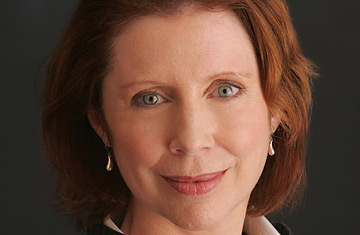
Jessie Gruman
(2 of 2)
In your first chapter, you lay out some very simple and practical ground rules (see below), including 'eat' and 'rest,' for getting through the first 48 hours. How did you come up with that game plan?
I started writing this book thinking that I would write it based on my own experience. But after I talked to other people, I found that my experience was just one of many. So the book now reflects the concerns of the really diverse, wide-ranging group of people who have responded to their own devastating diagnoses, or to those of family members.
I learned so much from writing this book. I went into it thinking that I knew so much. After all, I had had so much practice! But people respond in such different ways, and you can learn from that. It certainly made the book richer to hear how people were able to cope so creatively with their bad news.
Was it also difficult to write this book because of your personal experience?
I realized that there were a lot of things I had forgotten about. In order to write this book, I had to be in that very dark place. [Pauses] Writing this book meant spending a lot of time being back there.
Is it still difficult for you to think about being in that place?
[Silence] Yeah.
If there were one message that people facing a medical crisis should remember, what would that message be?
That you are not always going to feel like this. This book is about three weeks in one's life. After you get through the first week, you will go on to the next thing. It's really important emotionally to remember that you won't always feel like this, that things are going to change. When you first get the news, you cannot imagine that you are ever going to feel any different. You can't imagine that this terrible thing is somehow going to get sorted into the normal categories of life. But it does, because that is part of our resilience, part of our ability to incorporate unimaginable difficulties. Human beings are just amazing that way.
Gruman's Common Sense Help for Getting Through the First 48 Hours
1. This is a crisis. Treat it as one.
Don't try to go on as though nothing is happening to you. Don't go to work for at least 48 hours, and cancel you social engagements until you get your feet back under you.
2. Protect Yourself
Talk if you want to talk, cry if you feel like it. There is no particular benefit or harm in either. Stop searching for information online if it is confusing or
frightening. You will have time to learn more later.
3. Don't rush to resolve your treatment plan
The only task you must accomplish during the first 48 hours is to make sure you have set up the next doctor's appointment.
4. Eat
Even if you aren't hungry: you don't need a hunger headache. Drink, too. Water, for sure. Coffee or tea? Whatever you are used to. A little Scotch? Sure (but not the whole bottle).
5. Rest
Emotional stress is exhausting. If you can nap, do it. If you are agitated, get up and walk around the block. If nothing else, it'll remind you that the world is carrying on in spite of your news.
6. Breathe
7. Move around
8. Remember: You will not always feel like this.
—From AfterShock, by Jessie Gruman, PhD, Walker & Co., 2007.
